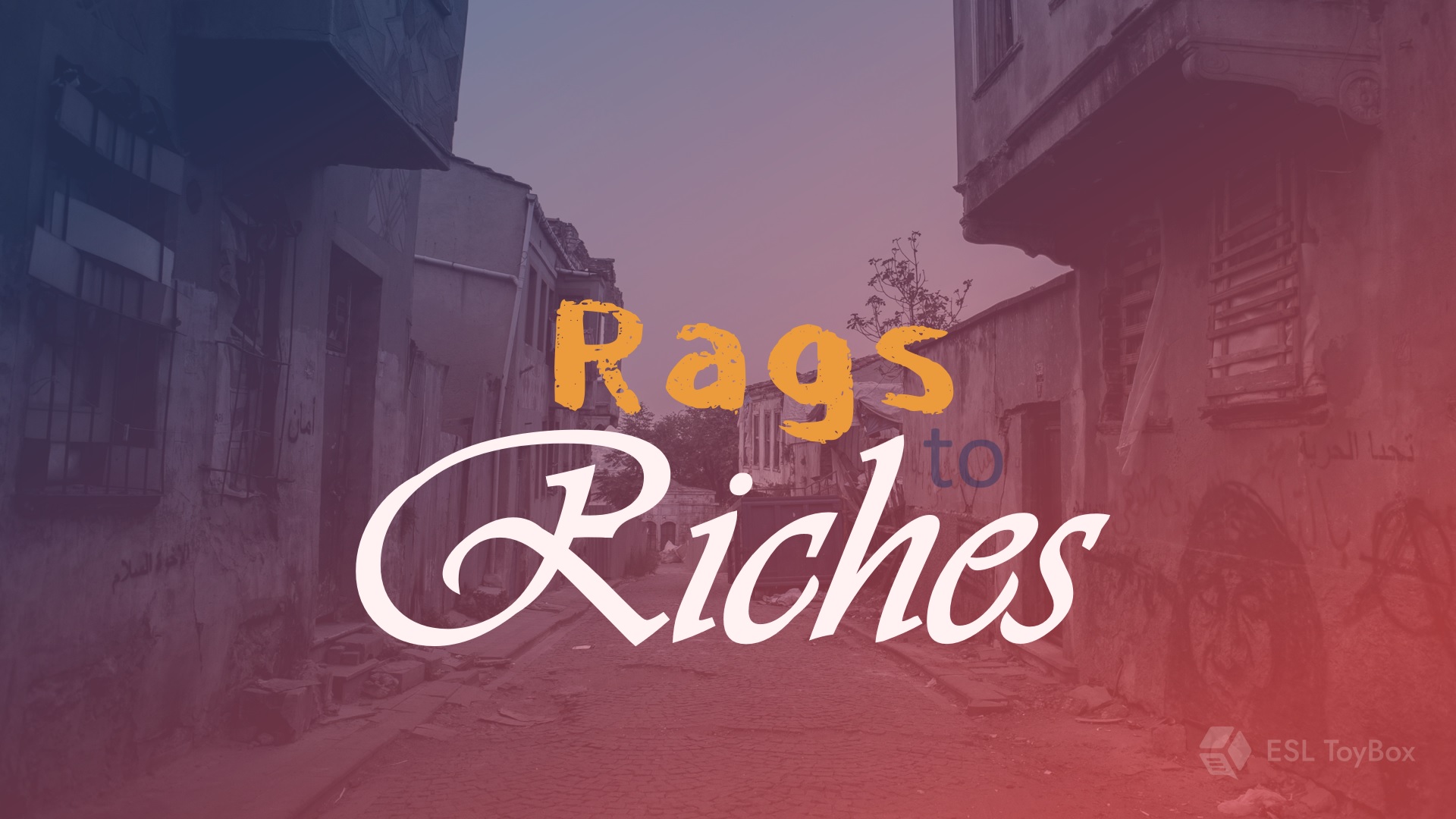Rags to Riches
Becoming a Millionaire
One of my favorite jokes is that when I came to Korea, I immediately became a millionaire. I went from rags to riches when I came to Korea. The reason for this is because of the exchange rate. It is true that I received over a million won with my first paycheck, but the exchange rate brings one million won down to about one thousand dollars. Still, it is fun to pretend. I came to Korea back in 2009.
Things have changed a lot, so I don’t know if it is still true. But I was treated as a little bit of a celebrity. I enjoyed it for the first year or two, but after that, it became annoying. I just want to be left alone and ignored. Nowadays, people don’t approach me as much anymore. It was always annoying when I went grocery shopping, and I was stopped by a mother who wants me to tutor her son or some middle-aged guy who wants to practice his English. I think there are a lot of foreigners living here who would enjoy those interactions, but I am tired of them. I just want to live my normal life.

Meaning
Going from rags to riches means that you were poor, but you are now rich. Rags are tattered, or destroyed, pieces of clothing. Often, a rag is cut from an old cloth or shirt. We use rags for dirty jobs, and we see them as disposable. The image that I get from rags to riches is a poor person who can’t afford new clothes. They have to wear rags. But, as the phrase says, they can progress from being poor to being rich. It is a story with a happy ending.
Example: Korea went from rags to riches in the 1990s and 2000s.

Origin
The American Dream
We don’t know where this phrase originated, but the connection between poor people and rags can be seen quite easily. It has been in use since the 1880s. Horatio Alger (1834 – 1899) often wrote about poor boys who became rich through their strong work ethic. He popularized the term. Alger was an American and there is a belief that the phrase may have arisen out of the American dream. The American dream is the belief that anyone can be successful in America if they work hard. So, Americans and immigrants to America have very large dreams.

Cinderella Story
The idea of going from rags to riches has been around a long time. One great example is Cinderella, who went from being exploited by her family to marrying the prince. Another phrase, Cinderella story, is closely related to rags to riches. A Cinderella story is when someone who is not expected to succeed, actually does succeed. We see Cinderella stories in sports a lot where an athlete or team is not expected to do well but comes out of nowhere to win the championship.

The Role of Luck
People like to cite examples of rags to riches as inspirational stories. Certainly, there have been famous examples of people going from rags to riches. However, it is nearly impossible to change social class in the modern era. We like to teach these stories and make it sound like anyone can do it if they work hard enough, but it is simply untrue. In fact, upwards class mobility decreases over time. It is harder to go up in class now than it has ever been before. You need a lot of hard work, dedication, help, and LUCK to go from rags to riches. People want to believe that their hard work is the reason for their success, so they try to downplay how much luck was involved in their success.
The effect of luck on success is demonstrated in the Veritasium video, The Success Paradox. In the video, Varitasium explains how people overestimate their own contribution and underestimate the role of other contributions. Successful people believe they are solely responsible for their success and ignore how much of it was due to luck. Some examples of luck leading to success include date of birth, where you are born or live, parental income, social class, weather, unappreciated help, and physical or intellectual advantage you were born with. His conclusion is that believing that you are solely responsible for your success is a useful delusion. The issue is that it downplays the people who were hard working and not successful.

Famous Rags to Riches Stories
Here are some example of people who went from rags to riches:
- JD Rockefeller
- Cornelius Vanderbilt
- Oprah Winfrey
- Genghis Khan
- Ralph Lauren
- George Soros
- Do Won Chang
- Larry Ellison
- Steve Jobs
- Emperor Diocletian
- Catherine I of Russia
- Justinian
- Nader Shah
- Howard Schultz
- Madam CJ Walker
- Roman Abramovich
- Eminem
- LeBron James
- JK Rowling
- Floyd Mayweather Jr.
- Leonardo DiCaprio
- Michael Jackson
- Arnold Schwarzenegger
- Charlie Chaplin
- Trevor Noah
- Elvis Presley
- MrBeast
For more English phrases and quotes, follow me on Facebook:
https://www.facebook.com/ESL-ToyBox-112152010890485
Resources:
https://en.wikipedia.org/wiki/Rags_to_riches
https://www.idioms.online/from-rags-to-riches/
https://www.languagehumanities.org/what-does-from-rags-to-riches-mean.htm
https://youtu.be/3LopI4YeC4I
https://www.weforum.org/agenda/2020/09/social-mobility-upwards-decline-usa-us-america-economics/


